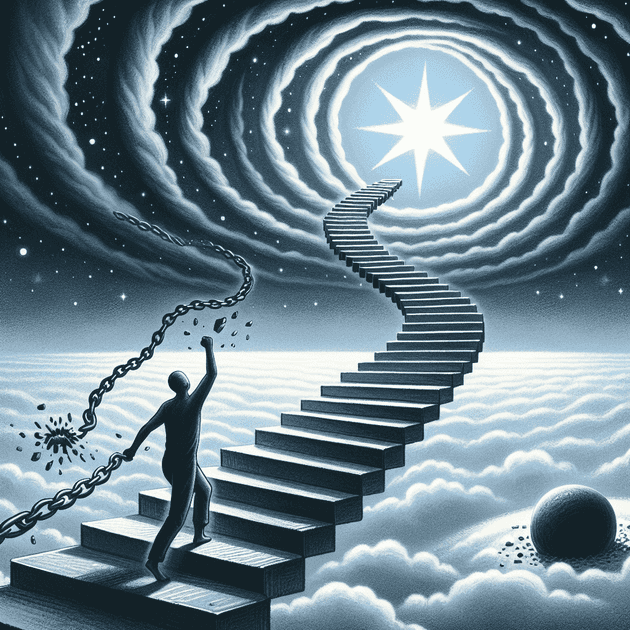Self-actualization is crucial because it enhances our well-being and makes our lives meaningful. We possess immense untapped potential, and I am thrilled to see what we can accomplish.
I would feel humiliated if I did not grow, as stagnation would signify a wasted opportunity to explore life's offerings, not just for me but for others as well. Self-actualization benefits us individually, but its implications are broader. It requires invoking the best in others, as well as in myself. A purely personal goal that disregards societal circumstances and other people is inadequate.
My pursuit of self-actualization is fueled by my fear of death. Without realizing my full potential, I would be unhappy. I believe we all have incredible creative, humanitarian, and spiritual capabilities. Sometimes we feel alienated because we focus too narrowly on ourselves.
Pursuing our greatest potential, even in the face of adversity, is a rewarding journey. This quest is driven by a spirit of exploration, a fundamental biological impulse that serves as the foundation for all growth. Exploration involves seeking out and making sense of new, challenging, and unpredictable situations, propelled by curiosity, discovery, and openness.
Creating new growth opportunities is energizing. Our fundamental urge for exploration can serve as the bedrock upon which we build other objectives, progressing to higher levels and making meaningful contributions to the world. The desire for continual learning is central to self-actualization and extends beyond personal growth. Realizing our full potential enables us to attain greater internal unity and a stronger connection with humanity.
Achieving self-actualization will change our perception of loneliness. Despite our inherent desire for deep and complete connections with others, we must also accept the existential reality of our inherent isolation. By contributing to something greater than ourselves, we foster a sense of community.
Because of this newfound meaning, other aspects of our personal lives will also transform. We're caught between an indifferent cosmos devoid of intrinsic meaning and our innate desire to find purpose during our limited time on Earth. Overcoming these obstacles will make life feel more meaningful.
Though I may be alone in my boat, the sight of other boats and distant lighthouses is comforting. Such a perspective affects how others see me, as it demonstrates my willingness to navigate the vast, perilous ocean of life. It's reassuring to know that we're all in this together, facing similar existential challenges.
Self-actualization influences how we view life, making us realize that a good life is not a destination but a journey. The process won't always bring happiness; it may even lead to suffering and heartbreak. But as we unlock more of our potential and plunge into life's stream, we must continually step out of our comfort zones to become the best versions of ourselves. In doing so, we prove to the universe that we existed and made a positive impact on others.
One practical approach to self-actualization is experimentation. Start by listing life's challenges and your assumptions about them. Testing these hypotheses will help you overcome life's obstacles, allowing you to learn from mistakes and continue improving.
In complex organizations, collaboration is key. Individual efforts accomplish little; everything is highly interconnected. Self-reflection and an openness to change enhance our effectiveness. Productivity is not magic; it's a skill set that can be learned and applied.
To realize collective potential, we need bold, heartfelt leadership across all sectors—from corporations to governments, activist groups, schools, and faith communities. Leading from a place of self-awareness rather than fear is essential.
Maintaining a writing habit helps me organize my thoughts and actions, particularly because I enjoy reading self-help books. Writing fosters continuous improvement and personal growth, serving as a proactive method for exploring all avenues to realize one's full potential.
Insecurity can hinder self-actualization. People may act out, like cornered animals, when they experience real or anticipated pain. However, humans are inherently kind when their basic needs for love and security are met. Any behavior that deviates from this kindness is an overcompensatory attempt to meet these basic needs.
Psychological anxieties often signal underlying insecurities that impede our ability to realize our full potential. In an increasingly unpredictable world, even basic needs like housing can become a crisis. A foundational need for safety and stability is essential for meeting all other needs, including self-actualization.
We will never have complete control over our environment, making stress and uncertainty inevitable barriers to self-actualization. The only true security lies in learning how to cope with insecurity.
To track self-actualization progress, consider real-world possibilities. Aiming for a 10% improvement means doing what everyone else is doing; to truly excel, aim for a 1000% improvement. This requires rethinking challenges, exploring what's technically possible, and enjoying the process.
Self-actualization isn't just about discovering innate abilities; it's about evolving into the person who can serve and lead effectively. Instead of asking who I am and what I'm good at, I ask what's needed of me and how I can grow into that role or lead others to do so.
Achieving self-actualization involves completing high-impact tasks that align with your core interests, rather than merely completing low-value work. Understanding that what we value may differ from what others value is important. In other words, our path to happiness is unique.
Engaging in a flurry of unrelated activities rarely contributes to self-actualization. Discovering your potential and life's purpose is akin to finding true love; it takes time and effort. Like building a relationship, self-actualization requires consistent effort to identify what genuinely resonates with us. It's the process that brings our inner selves to life and helps us evolve into more complete individuals.
